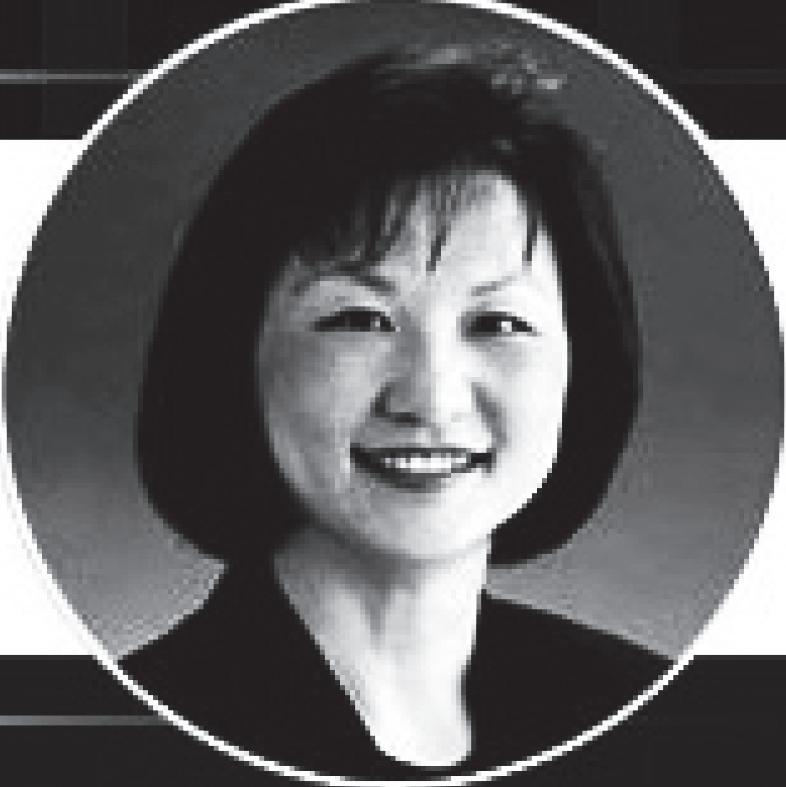
7 minute read
Editorials
(Re)cycling blame
BLUE. GREEN. GREY. It shouldn’t be hard. But as lonely waste bins are scattered across Palo Alto High School’s campus, it is evident that neither students nor the administration care about sorting waste appropriately.
Data provided by the Paly ECO Club — which only received one waste report from Nov. 8, 2017 — highlights Paly’s struggles with trash. Of 526 pieces of waste sorted into three categories, only 50% of waste in trash bins was landfill material, 49% of waste in compost bins was compostable and an abysmal 33% of waste in recycling bins was recyclable — no better than random chance.
In a climate where environmental preservation is heightened, Paly is failing in the fight to manage waste. Until PAUSD starts making this a priority, students will continue to believe that the assortment of colored bins means that their waste is being sorted correctly, which lulls them into a false sense of security about their recycling habits.
Unfortunately, our investigation into the district’s waste management does not show any strong promise of an improved system.
The Zero Waste Initiative, a program committed to reducing waste within Palo Alto, supposedly serves as a database of information about Paly’s waste management. However, other than the single waste report from the ECO Club, we did not find any useful data on the subject.
Though a Zero Waste Champion is assigned to each PAUSD campus to encourage students to actively sort their trash, many are unaware of who their representative is or of their responsibilities. Rebecca Navarro, the school district Sustainability Program manager, initially directed us to the Zero Waste Champion at Paly, Christy Resinger, for available waste reports. Resinger did not respond to interview requests and did not provide any waste report data.
Can it be that Zero Waste Champions hold a puppet role and simply give students a false confidence that waste is being handled correctly? Or is there is an inherent problem with placing full responsibility on one teacher to promote better recycling and to handle all waste data at a school of over 2,000 students?
Paly custodians also receive an undeserving amount of blame for these waste management issues.
“It’s a little frustrating as a custodian because we get audited too,” says Albert Hidalgo, a Paly custodian who has worked in the district for 23 years. “It falls on us when a majority of the stuff in there is not compost and it’s in the recycle.”
Sorting waste incorrectly causes serious complications when excess garbage breaks down in landfills and liquid leachate forms, contaminating groundwater and damaging wildlife and human health with harmful chemicals.
These appalling findings not only highlight students’ relative lack of understanding about how to sort waste and a general apathy towards maintaining environmental health, but also a bigger issue that stems from PAUSD’s leadership.
Rather than faulting students and staff members for making poor use of the disposal system, the district needs to step up and take charge to address our unending lack of accountability for poor waste management.
The Zero Waste Commission and PAUSD must collaborate with teachers and students to implement a comprehensive waste education program, as well as meetings to better prioritize waste organization and emphasize our shared responsibility in improving environmental consciousness.
Additionally, we can keep school trash, recycling and compost bins in groups of three, no matter where they are. Nobody is making an extra trip to find a can of another color — they’ll just use what’s at hand. “I think it’s got to be total chaos in order for them [PAUSD] to step up and do something, because I don’t know if [organizing waste] a big priority,” Hidalgo says. “We want the mentality of having proper sorted bins, but who’s the enforcer?” v PAUSD IS FAILING AT WASTE MANAGEMENT
Art by Megan Andrews There is an inherent problem with placing full responsibility on one teacher to promote better recycling.
THE PALO ALTO CITY Council launched the “safe parking” program on Jan. 13, allowing for houses of worship to accept a set number of car campers to park in their lots for 90 days at a time.
The “safe parking” program will reserve four parking spots at each religious site and dedicate them to RV parking. Those using the spots will also be connected with a social service provider who can help them in their search for a permanent residence.
This initiative will mitigate the housing struggle by providing parking spots for those without a permanent residence.
Palo Alto City Council approved the program after the release of a memo, authored by Councilmembers Tom DuBois and Lydia Kou, called for making such parking spots available in larger, city-owned parking lots and possibly commercial property.
“The ultimate goal is to provide assistance to people to get them back on the path to stable housing,” DuBois and Kou stated in the memo.
Although not nearly the large scale operation that the memo called for, the new program is the beginning of a short-term solution to the housing crisis.
As housing prices in Palo Alto continue to increase, many who work minimum wage jobs on 12-hour shifts do not have the resources to be able to commute from more affordable areas. Those who live in cars and RVs — such as the ones that line El Camino Real — also run the risk of being reported to police or forcefully removed, as covered in Safe parking program is a step in the right direction a Verde article in March.
“The public is going to call the police on these poor souls out here, who have nowhere else to go and who put a roof over their own head … so that their home gets towed,” Britney, an RV resident on El Camino Real, told us. “What are they left with? They are out on the street, and that doesn’t solve the homeless problem.”
The “safe parking” program is a much needed short-term solution to the lack of affordable housing in Palo Alto; the individuals receiving these services play important roles in our community, and we commend the city for its initiative. v Art by Samantha Ho

PUBLIC SCHOOL STUDENTS have a number of rights when it comes to their religious beliefs, including freedom of expression, discussion and exercise. However, these liberties do not address the academic hindrances that often come with the time and dedication necessary for religious practice. Prioritization of Christian holdiays force those who practice other religions to miss school for holidays.
Although missing class to participate in religious events and traditions falls under “excused absences,” this reassuring categorization is misleading.
According to the Palo Alto Unified School District Board of Education, “Students who miss school work because of an excused absence shall be given the opportunity to complete all assignments and tests.” This often means being bombarded with makeup classwork, homework, exams and hours of lesson material upon return.
We believe that religious commitments should not entail academic burden. School holidays should better accommodate religious students For many students, religion gives them character, community and purpose — and it should not disadvantage them in school. The best way to address this issue is to better organize school holidays and significant events to accommodate more religions. By planning around major religious holidays such as Yom Kippur, Passover, Ramadan and Eid al-Adha, schools can convey to their students that their religious traditions matter and minimize the number of students who will miss class.
Increasing the number of flex days, or days consisting of three flex periods in which students can meet with teachers individually or catch up on work on their own, is also a potential solution. Since no lesson material will be taught, no exams administered and no homework or classwork given, religious students will not miss any schoolwork when attending religious events or celebrating important traditions. Currently, flex days are reserved for standardized testing only. We recommend the Palo Alto High School Innovative Schedule Committee, which is responsible for our daily bell schedules, implement more flex days throughout the year around major religious holidays.
For more permanent change, however, we advise Palo Alto students to voice their concerns at the biweekly PAUSD board meetings, which take place in the PAUSD office building at 25 Embarcadero Road, on the same block as Palo Alto High School. Open sessions are held from 6:30 to 10:30 p.m., and exact dates can be found on the PAUSD website.
The PAUSD Calendar Committee meets in the fall every three years to decide on a three year, district-wide schedule, with the next cycle set to start in 2022. Committee members propose additional schedule adjustments throughout the year, as well.
In the quest to create equal academic opportunity for all students, we urge the PAUSD Calendar Committee to consider all religious communities by planning around a broader range of major religious holidays. v

B Y CITIES Driving School
Drivers Education Courses

Private Behind The Wheel Lessons
Seven Days a Week

BayCitiesDrivingSchool.com (650) 368-6555
For over 35 years, we’ve successfully trained thousands of drivers in San Mateo and Santa Clara counties











